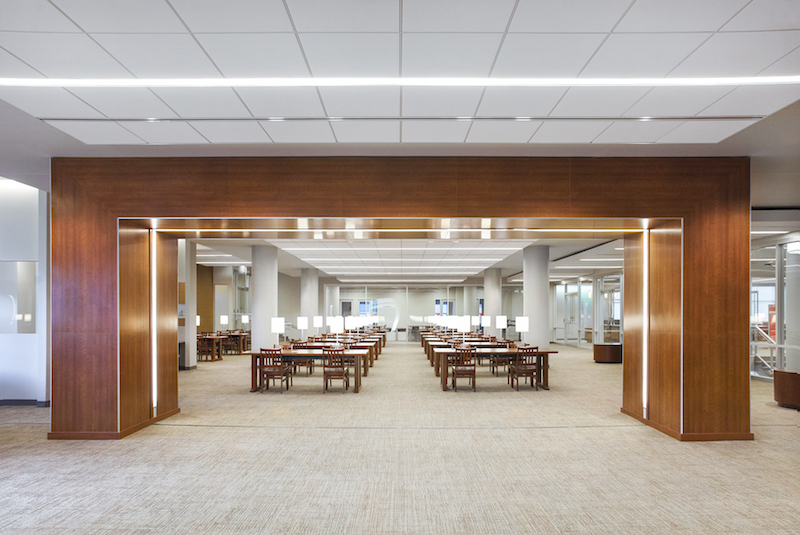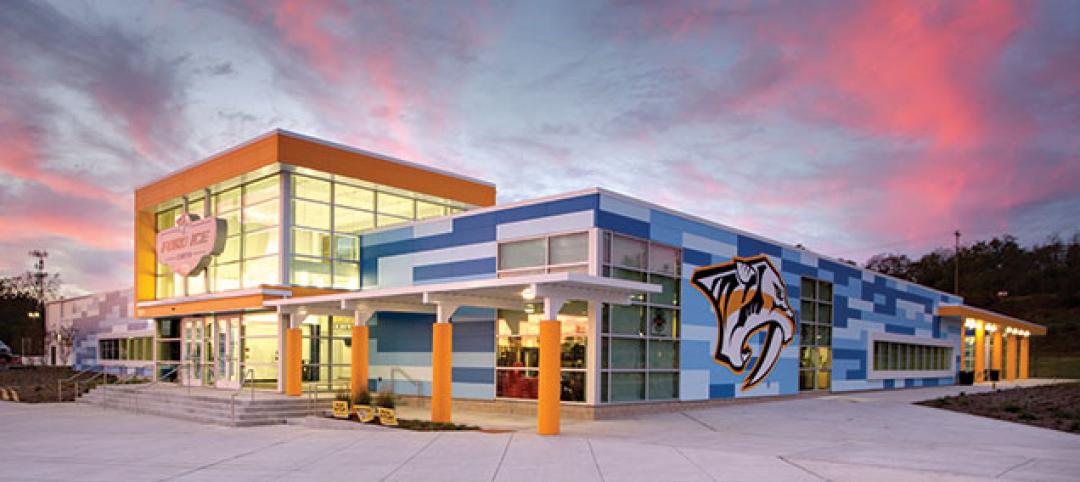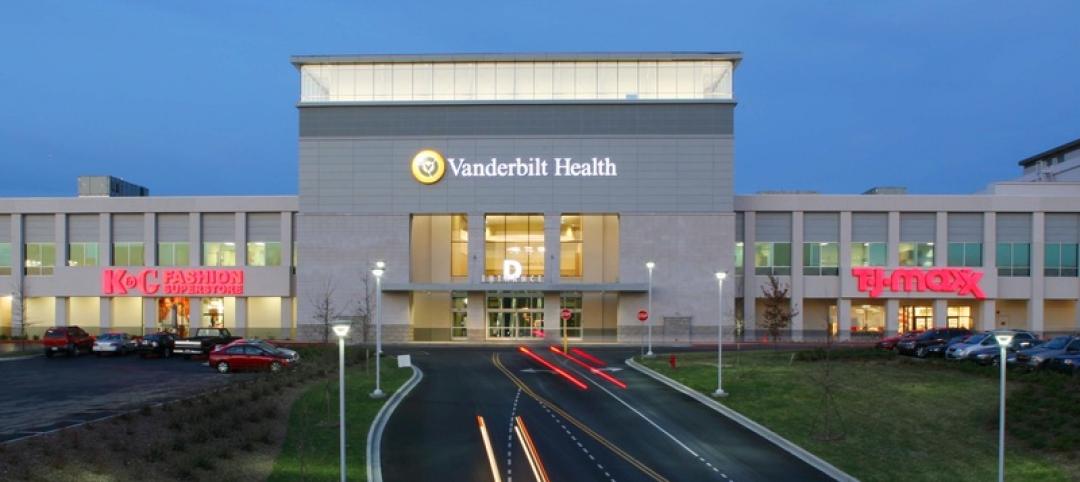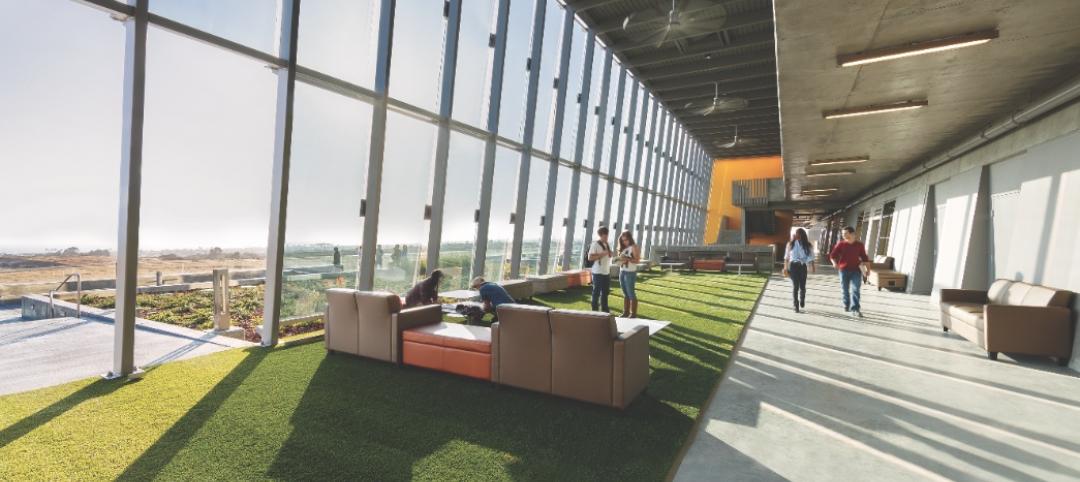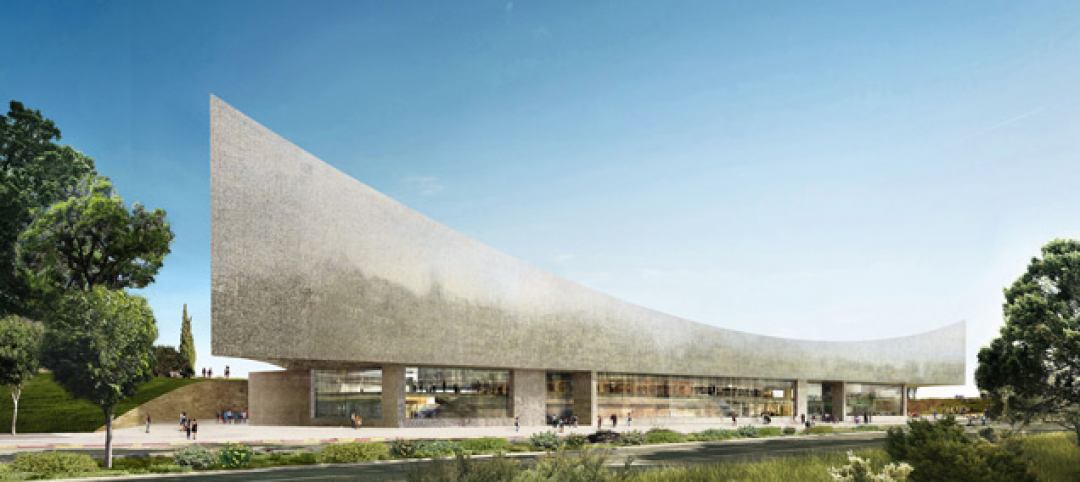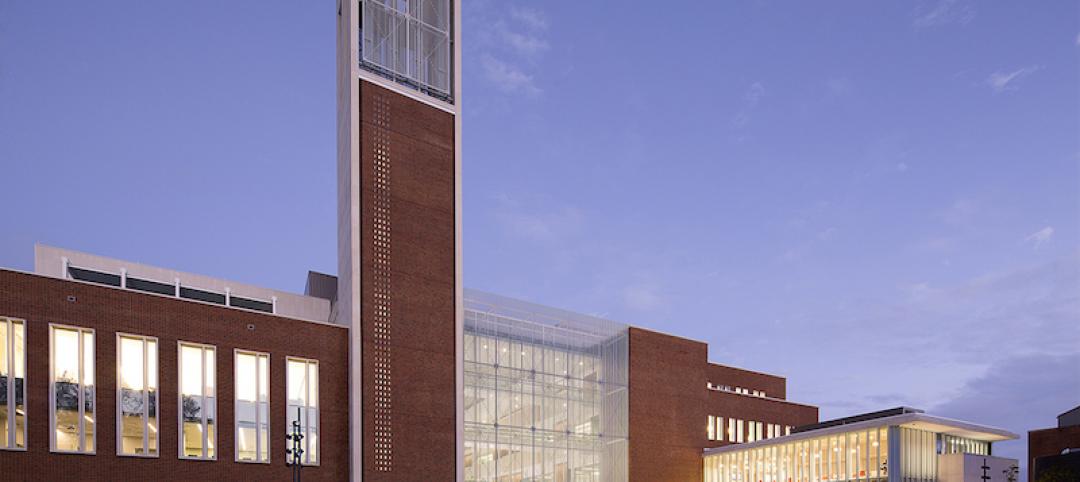Libraries remain one of the typologies that colleges and universities continue to invest in avidly. And most new construction and renovation seems to focus on creating spaces where students and even faculty can collaborate.
A recent example is the $15 million, 21,000-sf expansion of LaGuardia Community College in Long Island City, N.Y., which debuted May 12. This library, with more than 650,000 visitors annually, is one of the campus’s most heavily used spaces, and its expansion “is long overdue,” says the college’s president Gail O. Mellow.
The expansion converted a section of the second floor at the college’s E-building, which had been used for offices and classrooms, into more library space above the library’s existing mezzanine. It made the existing, previously single-floor, library 60% larger, and increased its seating capacity 74% to 732 by adding 312 workstations powered by Internet connections in each.
The new floor includes a 5,750-sf courtyard reading room, the 2,790-sf Thomson Reading Room, a 1,570-sf media lab, 1,360-sf archive room, a video editing room, a recording room, a language lab, offices, 11 group study rooms, restrooms, storage spaces, and mechanical and data rooms. There are also 50 new offices.
To achieve this expansion, the construction team—which included IBI Group Gruzen Samton (architect), Stalco Construction (GC), and AECOM (CM)—removed the original stairs from the main floor to the mezzanine, and cut a 50x60-ft opening into the concrete slab of the second-floor library space for a new structural steel staircase with wooden treads and handrails.
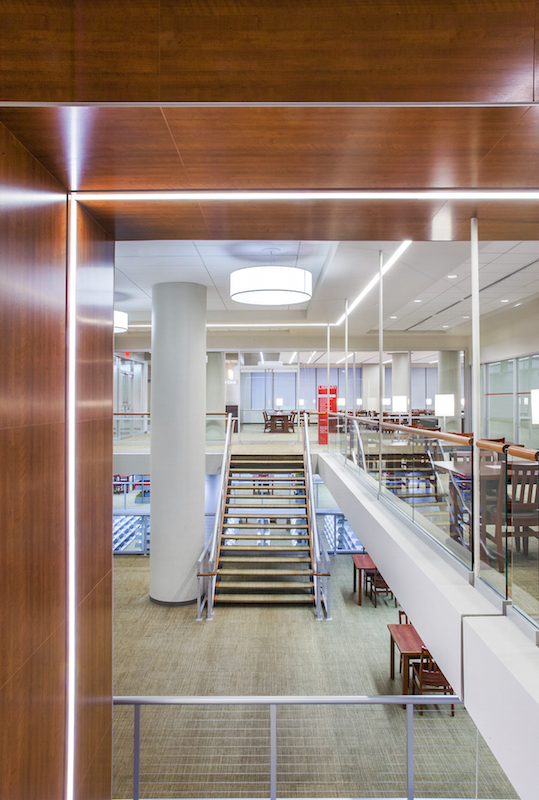
The construction team cut a 50x60-ft opening in the concrete slab of the new second-floor library space to accommodate a new staircase. Image: Ola Photography
The opening of the second floor is an architectural feature with glass sides that allow patrons to see into the library.
The challenges of this project included working while the existing library was in operation. Construction crews accessed the site through the exterior wall opening, and materials deliveries came through a ramp or a hoist through the second-floor opening. (The new stair was carried in sections through the exterior all and assembled onsite.) The crews never had access to the building’s elevator.
A temporary wall mitigated noise and dust. And when possible, the crews worked while students were away, on weekends and during spring break.
Other stakeholders on this project included the Dormitory Authority of the State of New York. LaGuardia Community College is part of the City University of New York system, and educates 50,000 New Yorkers annually. Its student population is largely lower-income, new-immigrant, or otherwise disadvantaged.
The Building Team included Joseph R. Loring & Associates (MEP), Ysrael A. Seinuk, P.C. (SE), and Whitehouse Lighting Design (lighting). The library’s atrium space above the stair features three oversized round light fixtures, which can be lowered automatically for maintenance.
Phase 2 of this project will focus on the first floor, and renovations will be based in part on input from students, faculty, and staff, according to the college
Related Stories
Sponsored | Cladding and Facade Systems | Mar 24, 2015
Designers turn a struggling mall into a hub of learning and recreation
Architects help Nashville government transform a struggling mall into a new community space.
Retail Centers | Mar 10, 2015
Retrofit projects give dying malls new purpose
Approximately one-third of the country’s 1,200 enclosed malls are dead or dying. The good news is that a sizable portion of that building stock is being repurposed.
| Jan 2, 2015
Construction put in place enjoyed healthy gains in 2014
Construction consultant FMI foresees—with some caveats—continuing growth in the office, lodging, and manufacturing sectors. But funding uncertainties raise red flags in education and healthcare.
| Dec 29, 2014
Spherical reflectors help spread daylight throughout a college library in Portland, Ore. [BD+C's 2014 Great Solutions Report]
The 40,000-sf library is equipped with four “cones of light,” spherical reflectors made from extruded aluminum that distribute daylight from the library’s third floor to illuminate the second. The innovation was named a 2014 Great Solution by the editors of Building Design+Construction.
| Dec 28, 2014
AIA course: Enhancing interior comfort while improving overall building efficacy
Providing more comfortable conditions to building occupants has become a top priority in today’s interior designs. This course is worth 1.0 AIA LU/HSW.
| Nov 10, 2014
Herzog & De Meuron unveils plan for National Library of Israel
The library’s new home will be a completely new building in Jerusalem, and will combine the functions of a central research center, a venue for indoor and outdoor cultural and educational activities, and a place for digital experience.
| Oct 16, 2014
Report: How to keep public libraries relevant in a digital age
Public libraries will avoid being relegated to the scrap heap of history in a digital age as long as they continue to serve as platforms for learning, creativity, and innovation that strengthen their communities, according to a new Aspen Institute report.
| Oct 16, 2014
Perkins+Will white paper examines alternatives to flame retardant building materials
The white paper includes a list of 193 flame retardants, including 29 discovered in building and household products, 50 found in the indoor environment, and 33 in human blood, milk, and tissues.
| Oct 15, 2014
Harvard launches ‘design-centric’ center for green buildings and cities
The impetus behind Harvard's Center for Green Buildings and Cities is what the design school’s dean, Mohsen Mostafavi, describes as a “rapidly urbanizing global economy,” in which cities are building new structures “on a massive scale.”
| Oct 12, 2014
AIA 2030 commitment: Five years on, are we any closer to net-zero?
This year marks the fifth anniversary of the American Institute of Architects’ effort to have architecture firms voluntarily pledge net-zero energy design for all their buildings by 2030.


